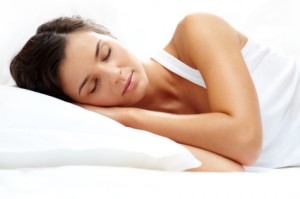Stress can have such a negative effect on your body and in particular affects your skin health. Among other effects, it is known to accelerate the aging process of the skin and make it look dull and lifeless.
It weakens the skin’s barrier and eventually decreases its ability to protect against harmful irritants, which in the long run lead to various skin disorders such as eczema, rashes and of course adult acne. The more stressed you are, the more likely you are to have an outbreak, especially if you are prone to adult acne.
The true psychological and physical effects of stress are only just being realized, and the good news is that responding appropriately to stress helps to lower its impact. It has only been recently that doctors have realized that stress really does make acne worse, and many medical professionals now recognize that reducing tension, anxiety and worry will help to reduce the effects of stress and may help to control acne flare-ups.
Your doctor may therefore suggest some lifestyle changes in the hope that they will help lower stress levels. These may include some simple changes to diet, suggested forms of exercise, stopping smoking and reducing alcohol intake; they may also include relaxation techniques such as meditation, yoga or even relaxation classes to help lower stress levels and mitigate acne.
Overactive immune system and stress
The immune system can play a significant role in causing and worsening inflammatory acne. Stimulated by stress, the immune system reacts in an excessive, aggressive manner. It attacks the P.acnes bacterium in the hair follicles with great enthusiasm, as if it was life-threatening, and as a result lays down fibrous scar tissue around the infection, inflammation or red tender acne lesion.
This scar tissue then pulls down on the hair follicle, resulting in a depressed or sunken scar on the skin. Controlling and reducing stress is the only method which can help stop the immune system from reacting naturally to the stimulation of the stress hormones.
Understanding your stress triggers
We live in stressful times: modern daily living is fast and furious, and many people feel under pressure. Each individual’s reaction to stress is different, however. For some, stress is nothing more than a feeling of apprehension or ‘butterflies’ in the stomach, while many others may experience more dramatic or emotional feelings.
Everyday occurrences such as traffic jams, waiting in queues or being late for school or work may put us under stress. Other events such as exams, relationship problems and financial worries can exacerbate stress levels, leaving us feeling out of control.
Once you have identified what makes you stressed you can make some positive changes to help you lower your stress levels.
Robert, 19, knows only too well the misery stress can bring.
Although I had acne at 14 it didn’t affect me too much, but when I started to prepare for my GCSEs, I noticed my acne changed. Now I seemed to wake up with huge red pus-filled inflamed spots. It was awful. The more anxious I got over the looming exams, the worse they got, and then I started becoming more anxious over my spots. It was terrible as nothing seemed to help them.
The doctor told me I was stressed but I didn’t know what to do about it. My mum said they would go once my exams were over and they did, but it took about two to three months. By the time I came to take my A levels, I knew what to expect, and sure enough it happened again.
Only this time it wasn’t quite so bad. I carried on playing football twice a week and I think this helped me deal with the stress better. I’m just hoping they don’t come back during exam time at university.
Dermatologists acknowledge that many people feel their acne is worse when they are under pressure. Identifying and understanding your own individual stress triggers is important to help you take control and manage your stress, and it is well worth learning new techniques or strategies to help you control or change the way you react to events.
Common stress signs
It all very well knows you have to reduce your stress and identifying what your stress triggers are, but of course you need to know just how stress manifests itself. There are both mental and physical symptoms of stress, and the most common mental symptoms include
- Tension
- Irritability
- Inability to concentrate
- Problems sleeping
- Feeling fatigued all the time
- No energy
Physical symptoms include
- A pounding heart
- Sweaty palms
- A dry mouth
- Shaking uncontrollably
- Difficulty breathing
- An upset stomach
- Butterflies in the stomach
- Frequent urination
Reducing stress
There are several steps you can take to help yourself combat the negative effects of stress. Remember that you will need to continue appropriate treatment for your acne at the same time as lowering your stress levels. Feeling in control of your acne rather than acne being in control of you will also help.
There are some simple steps to help reduce stress which you can try, but if you really feel stressed, or your acne is seriously affecting your life, then make sure you go and see your doctor and discuss this.
It’s not just people with acne who get stressed, of course; we all do to some degree or another. The methods I choose to adopt to deal with stress vary, and it’s worth trying a few simple ones to see which work for you. Everyone can benefit from relaxation techniques, which vary from yoga and Tai Chi classes through to meditation, visualization and autogenic training.
If attending a class is difficult, relaxation CDs are also available and you can use them at home to help you unwind, especially at the end of the day – but please don’t use them while driving or in the car.
Simple methods, such as a soak in a warm bath, reading or having a massage, will all help you to relax, although you may find a massage is not suitable if the skin on your chest and back is covered with acne lesions. Deep breathing, releasing muscle tension or just taking time out can all help.

Finding time for exercise is especially beneficial. Not only does it reduce stress, but it also makes you feel better and promotes your overall health and well-being. Try a new sport or an exercise class to get the best from your exercise, or join the craze and take up dancing.
Make sure you get enough sleep; anxiety and tension often adversely affect sleep and this plays havoc with your skin and your health. Lack of sleep raises your cortisol levels and floods your bloodstream with hormones that induce acne.
Make user you eat a healthy diet; stress can often cause weight gain as it increases the fat around your middle, which in time has adverse effects on your health. The stress hormones increase the natural desire to eat, so we consume more, and after a period of excess stress, fat is added as an extra layer below the abdominal muscle.
Unhealthy eating depletes the necessary vitamins and minerals required to keep your body functioning properly. This can in turn affect your mood, sleeping patterns, metabolism and body temperature, and may even lead to depression.
A study in the United States conclusively proved that acne among students was significantly worse during their exams, and their diets tended to be much unhealthier during the run-up to the exam period, contributing considerably to their acne flare-ups – another study suggesting that diet does have an influence on acne.
And don’t forget drinking. Alcohol can increase your weight and won’t help you deal with stress in the long term.
Learning to prioritize and manage time also helps reduce stress. All too often the pressures of trying to do too much can leave you feeling unable to cope. Simple time management strategies can help reclaim some control over your life and improve your self-confidence – writing lists, for example, and separating work from home duties while planning for the immediate, short-term and long-term future can also help people feel better able to cope.
Stress doesn’t vanish overnight, but it can be reduced with a little help. It may mean you have to try new methods and ways, just as you may have had to with your acne treatment, but it will make a difference eventually.
Easy stress busters
- Get a hobby. It may be creative, sporting, physical or even educational – it doesn’t matter what you choose, just have a go. Local education centers run hundreds of classes if you really don’t know where to start.
- Get outside. A daily walk for 20 to 30 minutes in the fresh air really does make you feel better.
- Find some friends and have a laugh. The power of laughter is enormous and helps to rid you of stress.
- Write a journal. Actually recording your stress and relating it to your acne outbreak may make you more aware of what your stress triggers are.
Sleep
There is no doubt about it; sleep plays a very important role in your skin’s health. A good night’s sleep helps to restore the body, encouraging it to build a strong immune system, a vital ingredient in the fight against acne. Although it won’t mean your skin will not suffer from acne, it does mean your acne lesions will clear more quickly, as the infection is destroyed.
During your sleep the skin cells are nourished and regenerated, so that your body literally restores itself while you are sleeping. The body absorbs free radicals from environmental factors including diet, exercise, stress, pollution, caffeine, smoking and alcohol during the day, and it is at night and during sleep that the body is able detoxify.
However, if sleep patterns are disturbed or shortened, hormone levels are affected and your body is unable to restore itself back to its equilibrium, resulting in excess sebum being produced and more acne lesions, along with moodiness, lack of concentration and low energy levels. Your brain will also lack of oxygen.
Lack of sleep can also raise stress and anxiety levels, making it more difficult for you to deal with the daily stresses you normally encounter. Once your stress levels are raised your hormone levels are affected, as are sebum production and blocked pores – the vicious circle of acne begins again.
It’s not just your sleep you have to think about when going to bed, but your clothing and bed linen too. If your clothes are too tight and rub against your skin, they may irritate it and spots will appear. Likewise, your bed linen should be clean, particularly your pillowcases if you have acne on your face.
Lying with your skin against the linen can cause irritation; a clean pillowcase every night will help to minimize the spread of bacteria and infection. It might also be worthwhile sleeping on anti-dust mite linen, mattresses and pillows, so no other skin irritants can affect you.
Sleeping soundly
Teenagers like to stay up late and get up late, which is all very well in the holidays but more difficult when they are at school or college, and particularly during exam periods. It might be hard work, but getting your teenager to accept a regular sleeping pattern of six to eight hours will benefit his or her skin. It might be difficult at first, but the results will literally show for themselves on the skin.
Establishing a regular sleeping pattern is the key for teenagers and adults with acne, and there are a variety of ways you can help yourself, or your teenager, to make it easier and simpler to get a good night’s sleep.
Sleep tips
- Establish a routine, and got to bed at the same time most evenings. This helps your body get used to a regular sleep pattern.
- Prepare for bed. Your wind-down period should include cleaning your face; you probably have an established acne cleansing routine at the end of the day, which you follow before bedtime.
- Lie on your back. This helps to keep your face off the bed linen and is less irritating to your skin.
- No eating or drinking too late. Eating a late meal will mean you feel full and heavy. Night time is the period of restoration for the body: letting it recover without adding to its workload is beneficial to optimizing your health.
- Avoid caffeine in chocolate, tea, coffee or fizzy drinks before bedtime and dairy too. It’s an old wives’ tale that a milky drink induces sleep, and if you do drink alcohol at night time make sure you drink plenty of water to stop yourself becoming dehydrated. The only trouble is, you might then end up having to get up at night to go to the toilet, disturbing your sleep.
- Take the television out of the bedroom. Over stimulating the mind before bedtime can keep you awake.
- Take exercise in the day, preferably in the fresh air for at least 30 minutes, each and every day. But don’t exercise too late at night either, as this can also keep you awake.
- You need to make sure your bedroom is well ventilated and not too hot.
- Make sure your bed is comfortable. It might sound silly, but an uncomfortable bed will make relaxing and sleeping soundly difficult, no matter how tired you are.
- If you are stressed then make sure you try and relax before you go to bed. Try yoga or meditation or deep breathing. Even listening to a relaxation tape will help to soothe your mind.
- If you take a nap in the day then keep it short – about 45 minutes is enough. If your nap is too long, you will find yourself too fresh and awake to sleep when it’s nighttime.
- Keep your room dark. Early morning light flooding in through the windows will disturb your sleep.
- Try not to think. This can be really difficult, especially if you have some work or relationship problem or are studying for exams. Have a pen and notepad at the side of your bed to write down anything that is troubling you; that way you can let it go.
- Lavender oil is good for relaxation. Put a few drops on your pillow or burn some in your bedroom before you go to bed. Make sure you blow the candle out before you sleep, though.
- Take out of your room any work-related objects, or cover them over if you can’t do this. Leave the work area alone before bedtime and switch off all electrical appliances at the socket.
- Take a warm bath – not too hot, or the increase in body temperature will keep you awake.
- If you really aren’t sleepy, get up and read for a little while. Then try again. Perhaps, you can try reading a very dull and light topic in a magazine or any newsletters that can really bore you to sleep.
- Don’t smoke at night, particularly before bedtime, as nicotine is a stimulant.
- Try drinking chamomile tea before bedtime.
- Get up at the same time every morning, even if you feel tired.



